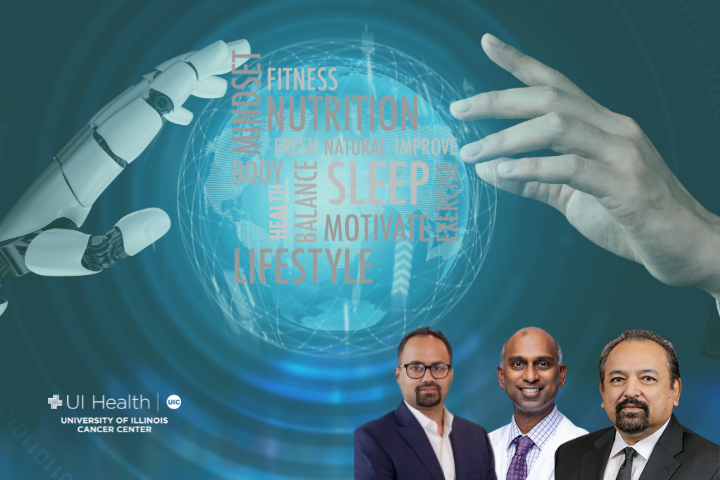
Physicians know that nonmedical factors, such as unstable housing, poverty and neighborhood violence, can profoundly affect health, but these social factors are hard to pin down in traditional patient health records. In a new project, University of Illinois Cancer Center researchers and University of Illinois Chicago (UIC) computation experts will use artificial intelligence (AI) to extract those details from records and use them for more effective patient care.
Their work was featured in a story in UIC Today.
The project, a partnership with technology company Pangaea, will create and deploy language models that comb through text from many sources and extract important data about social drivers of health. For example, the algorithm might pick up a social worker’s observation about violence in the patient’s family or infer, based on a patient’s address and income, transportation barriers to clinics or grocery stores.
“If you don’t understand your patient absolutely well, you’re always going to make predictions on limited information,” said Cancer Center Depputy Director VK Gadi, MD, PhD, the lead researcher on the project.
To realize the promise of these AI tools while protecting patient privacy, Cancer Center Director of Oncology Informatics Sandeep Kataria, MBA, worked with UIC’s Advanced Cyberinfrastructure for Education and Research to build new computer architecture. The system they built allows people to train and apply AI models but blocks access to patient records, except by approved UIC personnel.
“There were a lot of firsts in this project, and it gives us a blueprint for future projects involving AI and sensitive data,” Kataria said.
